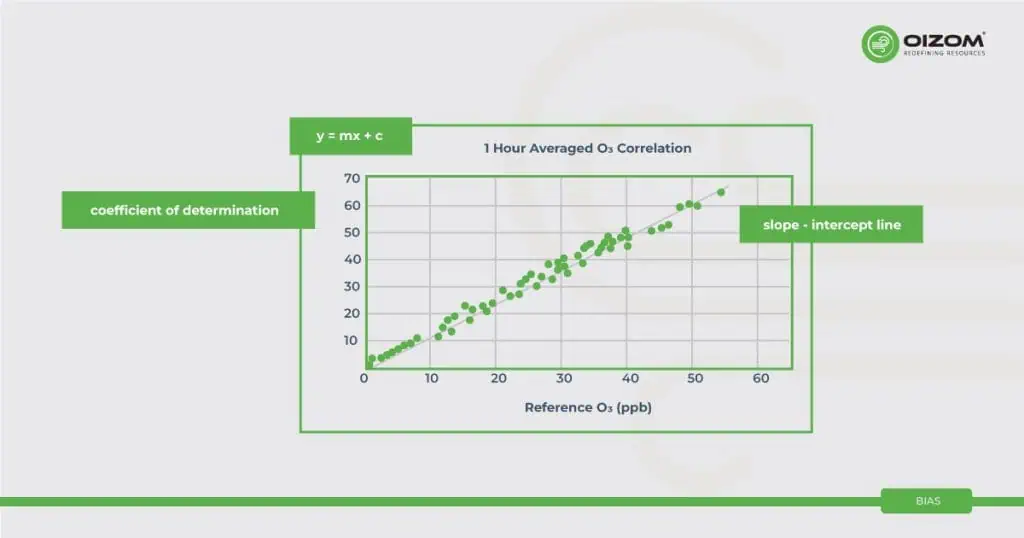Find the terms by letter
Bias
Definition
Bias refers to measurement error. For example, a sensor may always measure a little higher or lower than the true concentration. The systematic (non-random) or persistent disagreement between the concentrations reported by the sensor and reference instrument. It is often determined using the linear regression slope and intercept of a simple linear regression, fitting sensor measurements (y-axis) to reference measurements (x-axis). Bias is a systematic (built-in) error in data measurement that makes all the measurements wrong by a certain amount. It is a persistent error in the measurement process that causes all measured values to be too high or too low by a certain amount, compared to the true (reference) value. This is the intercept value (b) in the slope-intercept equation y = mx + b.
Definition and Description
In statistics, bias refers to the systematic error or deviation of a statistical estimate or measurement from the true or population value. When a measurement or an estimator is biased, it consistently overestimates or underestimates the true value in the same direction across multiple samples or observations. Bias can result from various sources, such as the sampling method, measurement instruments, or the choice of statistical model. It is a critical consideration because biased estimates can lead to inaccurate and misleading conclusions in data analysis. Statisticians often aim to reduce or eliminate bias in their analyses to obtain more accurate and reliable results.



